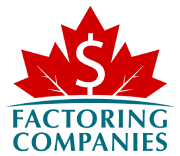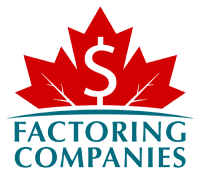
More than a quarter of Canadian small businesses seek external funding every year, government research shows. Close to half say it’s because they need working or operating capital. Because it’s fast, approval is easier than traditional financing, and doesn’t come with debt, invoice factoring is a popular solution in these situations. However, your experience will depend largely on the factoring company you select. In this guide, we’ll walk you through the top mistakes people make when choosing a factoring company and how to avoid them, so you can develop a lasting relationship that helps your business thrive.
1. Focusing Only on the Advance Rate

When businesses start exploring factoring, the advance rate, which is the amount you receive upfront when you sell an invoice, is often the first number they latch onto. It’s easy to see why. If one company offers 90 percent and another offers 80 percent, the higher number feels like the better deal. But that number, on its own, doesn’t tell the full story. In fact, it can be misleading.
What the Advance Rate Actually Tells You
The advance rate is the portion of your invoice that the factoring company gives you immediately. The rest is held in reserve and paid once your client settles the invoice, minus fees.
Higher advance rates sound attractive, but they are often paired with:
- Higher Fees: A company offering 90 percent upfront might charge more in factoring fees than one offering 85 percent.
- Stricter Reserve Release Terms: Some firms delay or complicate the release of the remaining balance.
- Extra Service Charges: You may see add-ons like credit check fees, monthly minimums, or lockbox fees that reduce your actual return.
For example, let’s say you factor a $10,000 invoice. Company A gives you 90 percent upfront but charges a three percent fee every 30 days. Meanwhile, Company B gives you 85 percent upfront but charges a flat 1.5 percent total. If your client pays in 45 days, you’ll end up with less money through Company A, despite the higher advance rate.
What You Should Do Instead
Instead of focusing solely on how much cash you get upfront, consider the full value of the partnership.
- Compare Total Costs: Ask for a full breakdown of all fees, including reserve release timing and administrative charges.
- Understand the Impact on Margins: Calculate your net proceeds from factoring after all costs, not just the advance.
- Look at the Full Service Offering: Some firms include client credit checks, invoice verification, and collections support. These services may reduce your risk or save your team time.
- Prioritize Fit Over Flash: A slightly lower advance rate might come with better service, more flexible terms, or a clearer fee structure.
2. Overlooking the Fine Print
It’s one thing to scan a contract. It’s another thing to really read it. Many businesses skim through factoring agreements and focus on the headline numbers, such as advance rate, estimated fees, and maybe the length of the term. But hidden in the fine print are the clauses that shape the day-to-day reality of the relationship.
What You Might Be Missing in the Fine Print
- Termination Penalties: Some contracts carry steep early exit fees or auto-renewal clauses that kick in if you do not give notice within a very narrow window.
- Minimum Volume Requirements: You might be required to factor a certain number of invoices or a minimum dollar value per month. Fall short, and you’ll still pay.
- Fee Triggers Hidden in the Language: A company might advertise a flat rate, but the contract outlines conditions that raise the rate if your client pays late or if the invoice exceeds a specific threshold.
- Personal Guarantees or Collateral Language: Some contracts require you to personally guarantee repayment or allow the factor to place liens on more assets than just your accounts receivable.
What You Should Do Instead
- Ask for a Sample Agreement: Before signing anything, request a copy of the full contract and read it carefully, ideally with your legal or financial advisor.
- Highlight Time-Based Clauses: Look for anything tied to contract length, notice periods, or reserve release schedules.
- Check for Definitions: How does the contract define a “fee?” Is it per invoice? Per 30-day period? Per calendar month?
- Confirm Your Obligations: Make sure you understand what you’re committing to, especially around minimums, reporting, and how disputes are handled.
3. Assuming All Industries Are Treated Equally
It’s easy to assume that invoice factoring is a standard service; you sell your receivables, get your cash, and move on. But behind the scenes, factoring is deeply tied to how your industry operates.
From invoice structures to client payment behaviours, industry norms shape how easily your receivables can be funded. Some factoring companies are well-versed in the nuances. Others are not.
Why Industry Experience Changes Everything
Factoring companies assess risk based on who owes the money, how long it typically takes them to pay, and how reliable your invoicing process is. But each sector comes with its own quirks.
- Transportation: Load confirmations, rate cons, and fuel advances require familiarity with freight-specific documentation and terms. Because of this, it’s typically best for trucking businesses to work with freight factoring companies.
- Construction: Progress billing, pay-when-paid clauses, and lien rights make receivables harder to verify unless the factor understands the construction payment chain.
- Staffing Agencies: Multiple clients, timesheets, and varying pay rates per week create complexity in tracking receivables and approvals for staffing firms.
If your factoring partner doesn’t know how your industry works, you may end up with delayed approvals, rejected invoices, or constant back-and-forth.
What You Should Do Instead
- Look for Industry Fit: Ask if the factoring company has existing clients in your field. Better yet, ask for references.
- Find Out How They Verify Invoices: A good industry-specific factor will understand your documentation and won’t ask you to reformat your workflow just to meet their system.
- Check Their Risk Model: Make sure they’re evaluating your clients fairly based on industry norms. For example, in freight, a 35-day payment is typical, not a red flag.
- Ask About Client Portfolios: If they serve mostly large corporate vendors and you’re in a specialized B2B niche, it may not be the right match.
4. Ignoring the Reputation of the Factor
Factoring is more than a financial transaction. The company you choose becomes part of your cash flow process, your client interactions, and your ability to operate smoothly. Yet many businesses focus on the numbers and skip the step of checking their reputation.
What Reputation Tells You That Rates and Terms Cannot
A factoring company’s reputation gives you insight into how they actually operate, not just what they advertise. It shows you how they treat your clients, how quickly they resolve issues, and how often businesses end up regretting their decision.
Here’s what reputation can reveal:
- Payment Reliability: Do they release reserves when promised? Are there delays that businesses constantly complain about?
- Client Communication: If your customers are contacted for verification or collections, are those conversations handled professionally?
- Transparency: Are businesses caught off guard by fees they didn’t expect?
- Ethical Practices: Have other clients reported aggressive tactics, questionable contract changes, or refusal to honour agreed-upon terms?
What You Should Do Instead

- Read Independent Reviews: Look beyond testimonials on the factor’s website. Check Google, the Better Business Bureau, and industry-specific forums or Facebook groups.
- Ask for Client References: A reputable factoring company should be willing to connect you with other businesses they serve, ideally, ones in your industry.
- Look for Consistency Over Time: One or two bad reviews aren’t unusual. Look for patterns. If multiple businesses complain about the same issues, delays, surprise fees, or poor communication, that’s worth paying attention to.
- Trust Your Gut During Onboarding: If a company is slow to return calls, vague about contract details, or evasive when you ask hard questions, that behaviour usually gets worse once you’re locked in.
5. Misunderstanding Fee Structures
Factoring fees can look simple on the surface, but they rarely are. A rate might be presented as flat, fixed, or all-inclusive, but unless you ask the right questions, you may end up paying more than you expect.
The issue is not that fees exist. The issue is that many factoring companies structure them in ways that are hard to compare unless you understand the full picture.
What’s Really Included in That “Rate?”
Here’s the problem: two companies might both quote you “a two-percent rate,” but what that includes, and how it’s calculated, can be very different.
Here’s what to look for:
- Tiered or Time-Based Fees: Some factors charge two percent for the first 30 days, but if your client pays late, even by one day, you might get hit with another two percent. Others charge weekly or even daily after a certain point.
- Flat Fees vs. Accruing Fees: A flat fee means you pay the same amount no matter when your customer pays. Accruing fees continue to add up the longer the invoice remains unpaid.
- Additional Charges: The headline rate may not include fees for credit checks, invoice processing, wire transfers, or monthly minimums.
- Reserve Release Triggers: In some cases, your full payment is tied to how quickly your client pays. If reserve releases are delayed and tied to back-end fees, that also affects your net payout.
What You Should Do Instead
- Ask for a Fee Table: Request a clear breakdown showing how fees accrue over time. Make sure it includes examples based on different payment scenarios.
- Get Clarity on the Billing Cycle: Find out whether fees are applied per calendar month, every 30 days, or weekly. This affects how quickly costs add up.
- Understand the Reserve Timeline: Ask when and how the reserve is released, and whether any fees are deducted from it before you receive the final payment.
- Compare Total Cost of Funds: Instead of looking at the rate alone, calculate how much money you’ll actually receive after all fees, then compare that across providers.
6. Skipping Due Diligence on Customer Service
Factoring is an ongoing partnership. You are going to be in regular contact with the factoring company, whether you are submitting invoices, following up on payments, or asking questions about funding timelines.
Yet, many businesses evaluate the rates and terms but forget to ask how the factoring company actually supports its clients. And when problems pop up, as they inevitably do, it becomes painfully clear how important that support really is.
What Poor Service Looks Like in Practice
Customer service is not just about friendliness. In factoring, it directly impacts your operations and cash flow. Here’s what happens when support falls short.
- Delayed Responses: When you need clarification or approval, waiting days for a response can slow down your funding or leave your team in limbo.
- Inaccessible Account Managers: If you are shuffled between departments or only have access to a general inbox, it’s harder to resolve issues efficiently.
- Lack of Transparency: If updates on payments or reserve releases are vague or inconsistent, it becomes difficult to plan and forecast.
- Poor Communication with Your Clients: If the factor handles client interactions without care, it can reflect poorly on your business.
What You Should Do Instead
- Ask About Support Structure: Find out if you’ll have a dedicated account manager or if you’ll be contacting a general support team. Ask how many clients each rep handles.
- Test the Response Time: During the evaluation process, email or call with a question, and see how long it takes to get a helpful response.
- Read Service Reviews: Look for patterns in reviews. Do other clients mention slow responses, poor follow-through, or miscommunication?
- Inquire About Client Communication: Ask how the factor communicates with your customers. Do they confirm invoices, send reminders, or handle collections? Make sure their approach aligns with your standards.
7. Failing to Ask About Recourse Terms
At the heart of any factoring agreement is the question of risk. Specifically, who takes the hit if your customer does not pay? That is where recourse vs. non-recourse terms come in. But too often, business owners sign factoring agreements without fully understanding what kind of arrangement they are entering into. And when a client defaults, they find out the hard way that the risk is still theirs.
Recourse vs. Non-Recourse: What You Need to Know
- Recourse Factoring: You are responsible for repaying the factor if your customer does not pay the invoice within a set time frame (usually 90 days). This is the most common model in Canada because it is less risky for the factor and often comes with lower fees.
- Non-Recourse Factoring: The factor assumes the risk of non-payment, but only under specific conditions, usually involving credit risk. If the non-payment is due to a dispute, fraud, or documentation issue, you are still on the hook.
What You Should Do Instead
- Ask About the Default Window: In a recourse agreement, find out how long you have before an invoice is considered uncollectible. The timeline can vary from 60 to 120 days.
- Clarify What Non-Recourse Covers: If a factor advertises non-recourse, ask for specifics. Does it cover all reasons for non-payment, or just certain credit-related scenarios?
- Confirm the Role of Credit Checks: If coverage depends on a credit approval process, make sure you understand how and when those checks happen—and whether you or the factor initiates them.
- Know What Happens in a Dispute: If your customer claims the work was incomplete or the goods were defective, find out how the factor handles that situation and who is responsible for resolving it.
8. Rushing Into Long-Term Contracts
When you are under pressure to stabilize cash flow, it’s tempting to lock in a factoring agreement quickly, especially if the rates look competitive or the provider promises fast funding.
But some factoring contracts are structured to keep you locked in long after that initial urgency passes. And if the service ends up being a poor fit, getting out can be more difficult and expensive than expected.
What to Watch for in Long-Term Commitments
Many factoring companies offer 12-month agreements by default. Some even auto-renew unless you give written notice during a narrow time window, sometimes as short as 30 days before the renewal date.
Others require you to factor a minimum volume over the course of the contract. If your business slows down or you decide to stop factoring altogether, you could still owe fees for invoices you never submitted.
Here’s what that looks like in practice:
- Auto-Renewal Clauses: These can extend your contract for another year if you miss the cancellation window, even by a few days.
- Early Termination Fees: Some contracts charge a fixed penalty, while others calculate it based on your unused volume commitment.
- Volume-Based Agreements: If you commit to $500,000 in factoring over a year and only factor $300,000, you might still owe fees on the remaining $200,000.
What You Should Do Instead
- Start With a Trial Period: Some factoring companies offer month-to-month contracts or short-term pilots. Use this time to test service quality, customer support, and overall fit.
- Ask About Exit Options: Before signing, find out exactly how and when you can end the agreement—and what happens if you do.
- Review Minimum Volume Requirements: Be realistic about your invoice volume. If there’s a minimum, make sure it aligns with your business activity and seasonal cycles.
- Watch the Auto-Renewal Language: Look for clauses that extend the contract automatically. If they exist, set calendar reminders well in advance of the deadline to cancel or renegotiate.
9. Choosing Based on Location Alone
There’s a natural instinct to look for local partners, especially when it comes to financial services. You might assume that working with a factoring company in your province means better service, easier communication, or faster funding.
But proximity rarely guarantees any of those things. And limiting your search to local options can cause you to miss out on providers that are a better fit for your industry, your cash flow needs, and your long-term goals.
Why Location is Less Important Than You Think
Most reputable factoring companies operate digitally across Canada. Documents are uploaded through secure portals, invoices are verified by phone or email, and funding is typically sent via electronic transfer, regardless of where your business or your customers are based.
Focusing only on geography often leads businesses to overlook:
- Service Quality: A local firm might be nearby, but that does not mean they offer faster response times or better support.
- Industry Expertise: The right fit may be a national company that works with hundreds of businesses like yours, even if they are headquartered two provinces away.
- Technology and Tools: Larger or more specialized factoring companies often provide client dashboards, integrations, and real-time reporting that smaller local firms may not offer.
- More Competitive Rates: National or regional factors may offer more competitive pricing because they are serving higher volumes and have more flexible funding sources.
What You Should Do Instead
- Prioritize Fit Over Proximity: Focus on how well the factoring company understands your business, not where their office is located.
- Evaluate Technology and Access: Ask how you’ll submit invoices, check funding status, and communicate with your account manager. A company across the country may still provide faster and more transparent service.
- Check Service Hours: If your business runs late shifts or works across time zones, make sure the factor’s hours align with your operational needs.
- Consider Cross-Border Experience if Needed: If you work with U.S. clients or export goods, you’ll want a factoring company that can support international transactions regardless of their location.
10. Thinking Factoring is One-Size-Fits-All
Many businesses approach factoring as if it’s a static product. You sell your receivables, you get your cash, end of story. But factoring is not a single solution, it’s a tool that should adapt to your business, not the other way around.
When you treat it like a one-size-fits-all product, you risk overpaying, overcommitting, or missing out on options that would serve you better.
Types of Factoring That May Be a Better Fit
Factoring companies offer a range of structures and services, each designed for different needs. Choosing the wrong one can limit your flexibility or add complexity you don’t need.
- Spot Factoring: With spot factoring, you choose which invoices to factor, when you want. There are no volume commitments, making it ideal for businesses with seasonal cycles or irregular cash flow needs.
- Full Ledger Factoring: You submit all of your invoices. This is better suited for companies with high volume and a consistent customer base.
- Recourse vs. Non-Recourse: As discussed earlier, the level of credit risk you’re willing to carry should guide this decision.
- Notification vs. Non-Notification: In a notification factoring arrangement, your clients know the factor is involved. In a non-notification setup, they pay you directly, and you handle forwarding the funds. Some businesses prefer the discretion of the latter.
- Add-On Services: Some factors offer client credit checks, collections support, or tools that integrate with your accounting software. Others keep it strictly transactional.
What You Should Do Instead
- Clarify Your Objectives: Are you trying to improve short-term cash flow? Reduce risk? Smooth out seasonality? Your answer should guide the structure you choose.
- Ask What Options Are Available: A reputable factoring company will walk you through different models and help you compare. If all they offer is full ledger factoring with a 12-month term, it may be worth exploring alternatives.
- Understand the Trade-Offs: More flexibility often means slightly higher fees per invoice, while long-term or full ledger options may offer lower rates but less control.
- Request a Customized Proposal: Instead of accepting a standard offer, ask the factoring company to tailor their solution based on your invoice volume, client base, and goals.
Get Help Finding a Factoring Company That Meets Your Needs
Factoring works best when it fits your business like a glove. If it feels rigid, confusing, or misaligned with how you operate, chances are there’s a better option out there. A good factoring partner will help you find it. If you’d like to streamline your search, we can match you with a reputable and experienced factoring company. Request a complimentary rate quote to get started.
FAQs on Common Mistakes When Choosing a Factoring Company
What are some signs a factoring company is bad to work with?
Lack of transparency, delayed payments, and poor communication are key warning signs. Read independent reviews, ask for client references, and test how responsive they are during onboarding. A reputable company will answer your questions clearly and provide written details upfront.
How do I know if a factoring company is right for my business?
Look for a provider that understands your industry, offers flexible terms, and communicates well. Make sure the contract fits your volume and payment cycles. If they take the time to learn how you operate, that’s a good sign the relationship will work.
What are the worst mistakes people make when picking a factoring company?
Common mistakes include focusing only on the advance rate, skipping the fine print, and ignoring how the company treats clients. The best way to avoid them is to ask detailed questions, review the full contract, and check for long-term flexibility.
What happens if I choose the wrong factoring company?
You may experience delays, unexpected fees, or strained client relationships. The good news is that many contracts can be exited with notice. Before signing, ask about exit clauses and contract length so you’re not stuck long-term if it’s not a good fit.

About Factoring Companies Canada
Related Articles
Get an instant factoring estimate
Factoring results estimation is based on the total dollar value of your invoices.
The actual rates may differ.
CLAIM YOUR FREE FACTORING QUOTE TODAY!
PREFER TO TALK?
You can reach us at
1-866-477-1778
Get an instant factoring estimate
Factoring results estimation is based on the total dollar value of your invoices.
The actual rates may differ.
CLAIM YOUR FREE FACTORING QUOTE TODAY!
PREFER TO TALK? You can reach us at 1-866-477-1778








